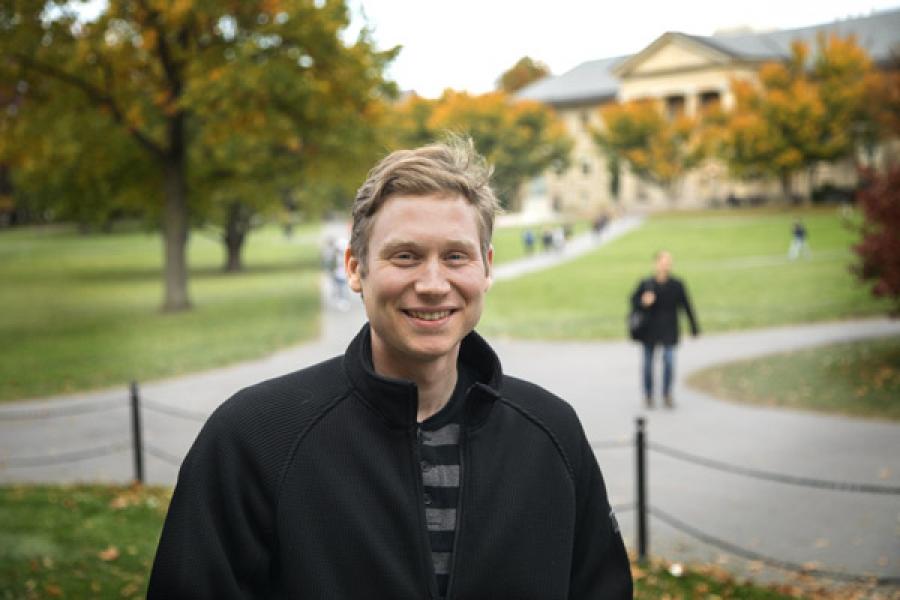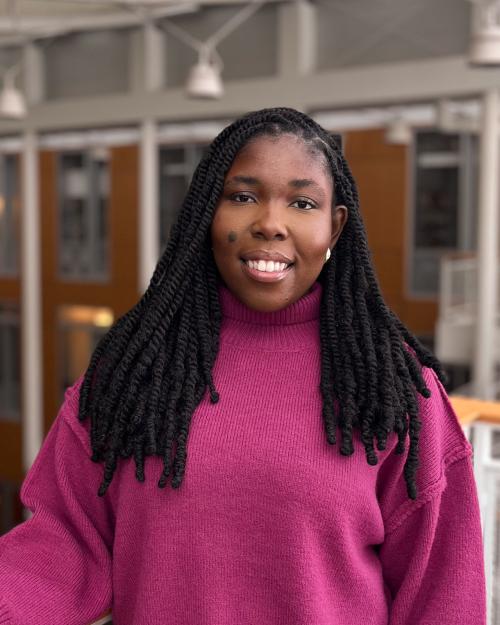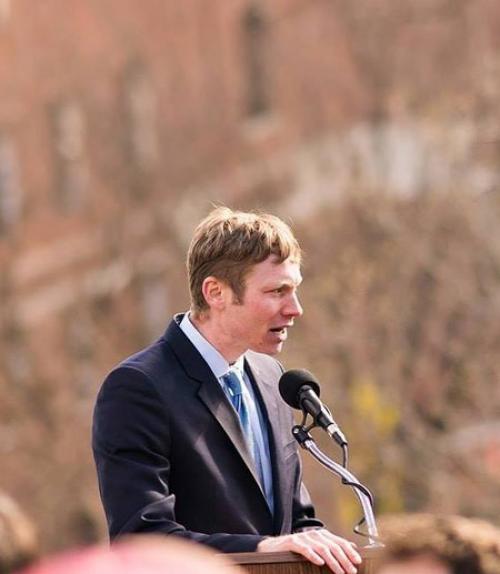Ethan Felder ‘09 isn’t shy about standing up for what he believes in. Even if that means literally standing up in front of a crowd of a thousand people at a Queens neighborhood rally.
Felder, a union-side labor lawyer in New York City, visited campus in November to talk about his work and his pro bono cases, including a recent voting rights case that he won in Queens.
That case, in which Felder and another attorney were able to reverse the move of a polling place away from a predominantly African-American residential area, comes on the heels of other activism and pro bono work Felder has undertaken in his hometown of Forest Hills, Queens. Much of that activist mindset started at Cornell.
After taking several classes with prominent professors like Isaac Kramnick and Ross Brann, Ethan decided to major in government and found his way to a College Democrats meeting.
“I remember thinking it seemed like a good way to connect the coursework to the present and what was going on,” Felder said. “There was a lot of politics in the air all of the time.”
Weighty issues of the day such as the Iraq war and the candidacy of Barack Obama made campus a hopeful place for students, Felder said, and prominent speakers like Shimon Peres and other international statesmen let him become ensconced in studying issues in depth. Felder ended up becoming president of the Cornell Democrats his senior year and editor of the Cornell Progressive.
After graduation, Felder earned a joint law/MBA degree from Washington University in St. Louis and ended up working in finance on Wall Street for two years before a volunteer experience helped him discover he wanted to spend his time as an advocate.
“I started volunteering nights at a worker center that serves undocumented migrant workers, Make the Road New York, while I was still working on Wall Street,” he said. “I saw quickly that there was a certain passion this brought out and it made me see that this is what I should be doing full time.”
He secured a position with a union-side labor law firm in Albany and was eventually able to parlay that experience into a position with a Manhattan labor law firm. He handles contract grievances, unfair labor practices cases, disability hearings, federal litigations and other matters that pertain to labor unions and their members, both in the city and across the metropolitan area.
And on his own time, he continues to speak out on issues of health care, immigrants’ rights, racial injustice and other issues, activism that he said has increased exponentially since last fall’s presidential election.
“I’ve been lead organizer of a half dozen rallies,” said Felder, who co-founded a group called the Queens Coalition for Solidarity after the election. “Despite the ruffling of feathers, there’s a lot of positive in seeing people come together.”
Felder said he’s now comfortable leading a rally, inspiring people to take action.
“The leadership position I was afforded as co-editor of the Cornell Progressive and president of the Cornell Democrats helped me,” he said. “I was getting people to feel like they were a part of something and had a common cause, and motivating people to work when there were a whole lot of other things they could be doing.”
And he continues pro bono work, including the recent voting rights case in which Felder and another attorney filed suit to stop election officials from moving a polling site serving 6,000 voters that had been in place for 50 years in LeFrak City, Queens.
“It was the most hotly contested city council primary in that district and the most highly concentrated African-American vote in Queens,” he said. And although the suit was unsuccessful before the September primary the poll site was restored for the fall general election. “This is the classic voter suppression tactic, a poll site change, and it’s done throughout the country.”
Felder admits that fighting an entrenched political machine in Queens could be hazardous, to both his career and in other more personal ways, but he remains undeterred.
“There was one meeting at a coffee shop with an operative connected to the political establishment and the setting was certainly designed to be more than a little intimidating,” he said. “But when you walk out of the coffee shop, you’re still going to be doing what you’re doing.
“There may be some idealistic naiveté involved here, but that goes a long way.”






